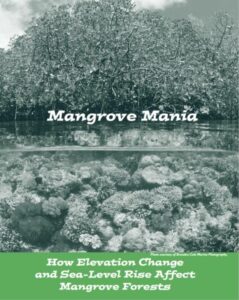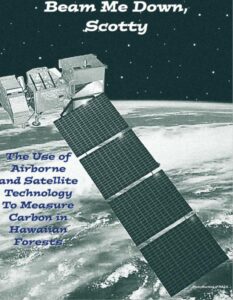My Sediments Exactly! – Can Mangrove Forest Sediments Keep up With Rising Sea Level?

The scientists in this study wanted to identify which mangrove forests, growing in various conditions, were keeping up with sea level rise.

-
 The question you will answer in this FACTivity is: How do mangrove forests compare with salt marshes? Materials: A blank piece of paper Provided poem (Optional: access to library or...
The question you will answer in this FACTivity is: How do mangrove forests compare with salt marshes? Materials: A blank piece of paper Provided poem (Optional: access to library or...FACTivity – My Sediments Exactly
The question you will answer in this FACTivity is: How do mangrove forests compare with salt marshes? Materials: A blank piece of paper Provided poem (Optional: access to library or...
Glossary
View All Glossary-

Joko Purbopuspito
My favorite science experience is doing something unusual and at the border of things. In the following three paragraphs, see if you can identify the borders at which I have...View Profile -

Richard MacKenzie
When I was little, I used to come home from the creek behind our house covered in mud. I still do. I love that I get to study fish, insects,...View Profile
Standards addressed in this Article:
Social Studies Standards
- Culture
- Global Connections
- People, Places, and Environments
- Science, Technology, and Society
- Time, Continuity, and Change
Note To Educators
The Forest Service's Mission
The Forest Service’s mission is to sustain the health, diversity, and productivity of the Nation’s forests and grasslands to meet the needs of present and future generations. For more than 100 years, our motto has been “caring for the land and serving people.” The Forest Service, an agency of the U.S. Department of Agriculture (USDA), recognizes its responsibility to be engaged in efforts to connect youth to nature and to promote the development of science-based conservation education programs and materials nationwide.

What Is the Natural Inquirer?
Natural Inquirer is a science education resource journal to be used by students in grade 6 and up. Natural Inquirer contains articles describing environmental and natural resource research conducted by Forest Service scientists and their cooperators. These scientific journal articles have been reformatted to meet the needs of middle school students. The articles are easy to understand, are aesthetically pleasing to the eye, contain glossaries, and include hands-on activities. The goal of Natural Inquirer is to stimulate critical reading and thinking about scientific inquiry and investigation while teaching about ecology, the natural environment, and natural resources.

-
Meet the Scientists
Introduces students to the scientists who did the research. This section may be used in a discussion about careers in science.
-
What Kinds of Scientist Did This Research?
Introduces students to the scientific disciplines of the scientists who conducted the research.
-
Thinking About Science
Introduces something new about the scientific process, such as a scientific habit of mind or procedures used in scientific studies.
-
Thinking About the Environment
Introduces the environmental topic being addressed in the research.
-
Introduction
Introduces the problem or question that the research addresses.
-
Method
Describes the method the scientists used to collect and analyze their data.
-
Findings & Discussion
Describes the results of the analysis. Addresses the findings and places them into the context of the original problem or question.
-
Reflection Section
Presents questions aimed at stimulating critical thinking about what has been read or predicting what might be presented in the next section. These questions are placed at the end of each of the main article sections.
-
Number Crunches
Presents an easy math problem related to the research.
-
Glossary
Defines potentially new scientific or other terms to students. The first occurrence of a glossary word is bold in the text.
-
Citation
Gives the original article citation with an internet link to the original article.
-
FACTivity
Presents a hands-on activity that emphasizes something presented in the article.
Science Education Standards
You will find a listing of education standards which are addressed by each article at the back of each publication and on our website.
We Welcome Feedback
-
Contact
Jessica Nickelsen
Director, Natural Inquirer program -
Email
Education Files
Project Learning Tree
If you are a Project Learning Tree educator, you may use “Watch on Wetlands” or “Soil Stories” as an additional resource.












